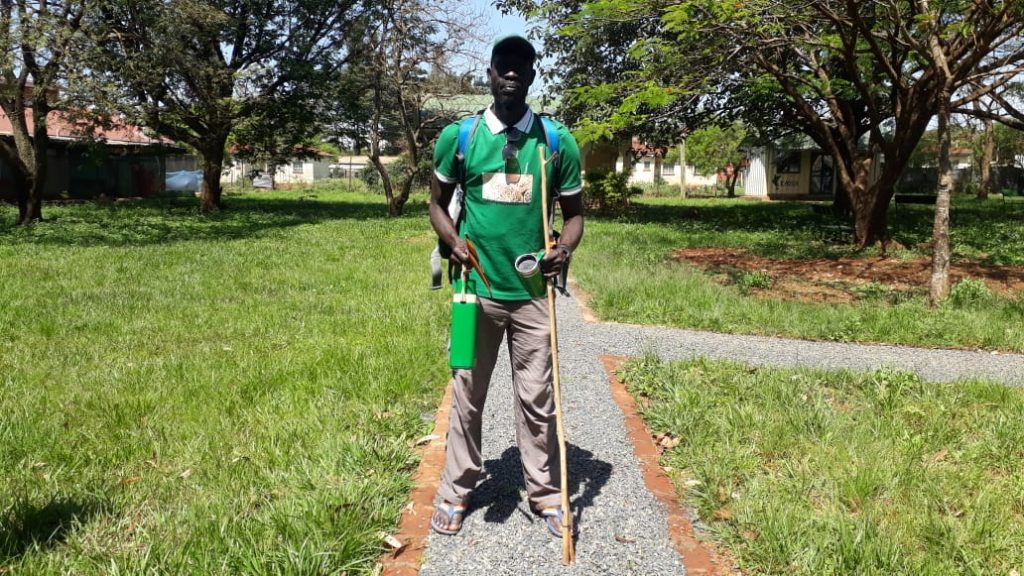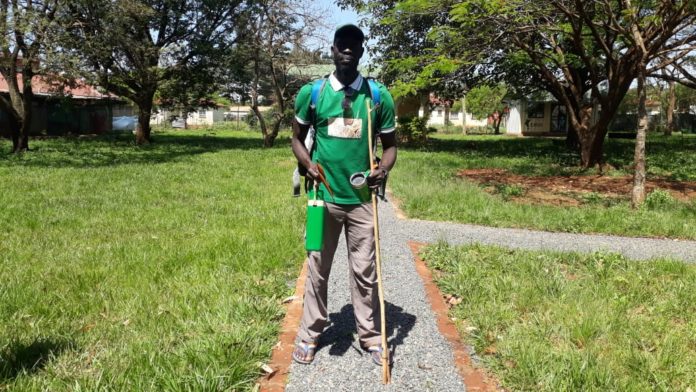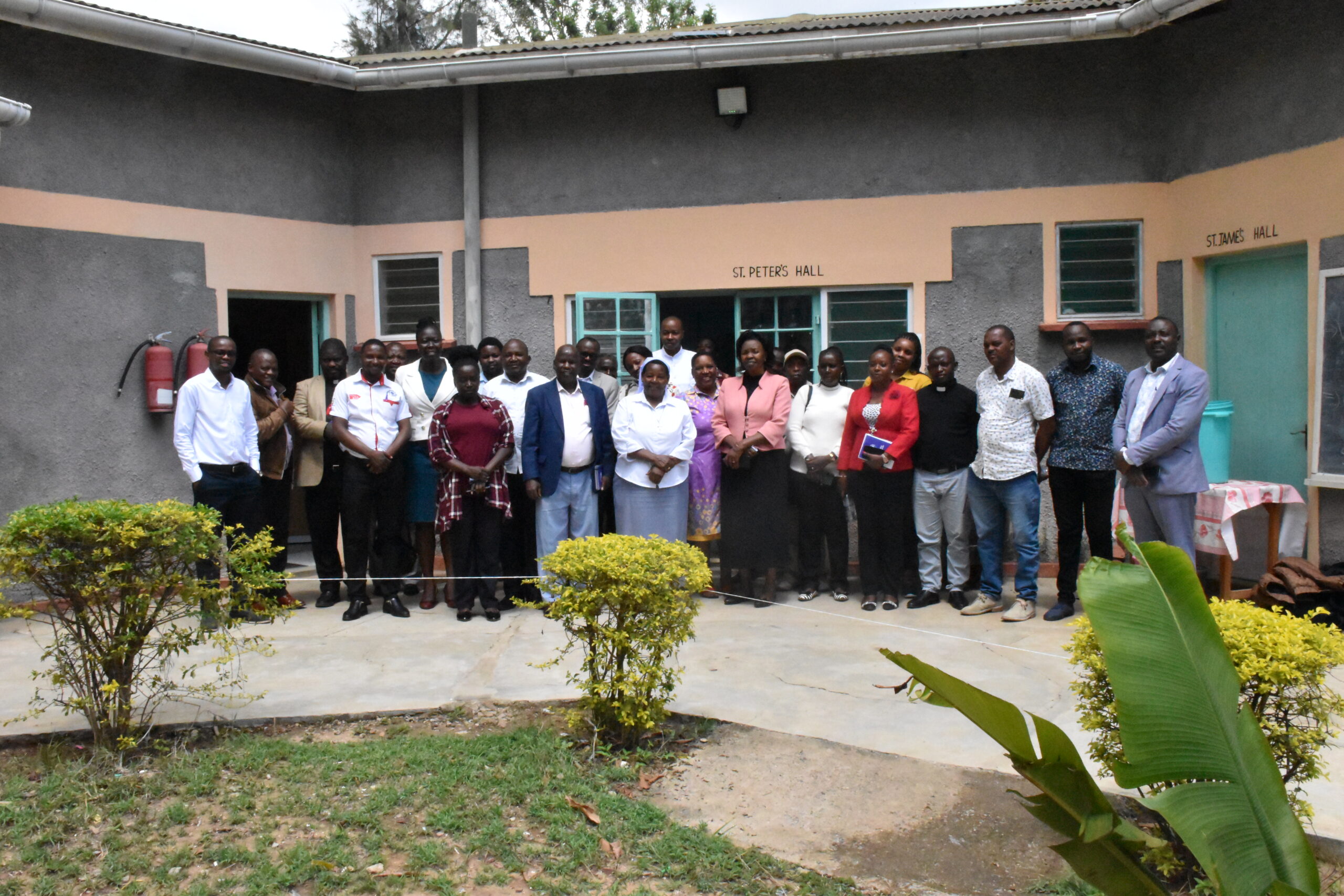By Okongo Oduya
Busia County, Kenya: Mustapha Yuma Gerima from the West Nile region in Ugandan is set to walk for more than 665 kilometers from Kampala Uganda to United Nations Environmental Program offices in Nairobi Kenya.
Yuma says the reason why he has embarked on such a long journey on foot is to seek the audience from the UNEP to find ways to sensitize Ugandans and Africa at large to conserve and protect the shea nut tree from extinction.
In an interview with Talk Africa in Busia Yuma said he quit his teaching profession in 2016 to join the war against environmental degradation including rescuing the shear nut fruit tree from extinction not just in Uganda but across Africa.
He says for 4 years he has traversed better parts of East Africa spreading the message of environmental conservation.

“After I left active teaching in 2016 I started moving around Uganda to see how the environment was being affected by human activities, especially on vegetation cover. I decided not to sit at the watch and that is when I started the environmental mountain initiative, just to help address environmental issues affecting Uganda and beyond,” he said
In 2016 through Rwenzori Mountain Initiative limited by the grantee in partnership with other organizations such as Endangered Species conservation Team (ESCOT) Yuma started his campaign against environmental degradation after learning that people were cutting trees for wood fuel as well as charcoal burning.
Since then Yuma says he has successfully covered thousands of kilometers the latest one being 512 kilometers from Kampala to Rua.
In April 2018 Yuma said he embarked on 427 kilometers on foot from Kasese to Kampala to meet the speaker of the Ugandan national assembly to help him deliver the message to the members of the national assembly of Uganda to find ways of formulating laws and policies that will help address challenges facing shear nut tree species and environment in Uganda at large.
“I have made three major walks that are known to the world, the first one was from Kasese, the town that sits on the bottom of mount Rwenzori to Kampala which is 427 Kilometers in April 2018, I took 11 days to reach Kampala. Along the way I was visiting every district headquarters calling upon the district leaders to encourage people to plant trees on their daily basis,” he said
According to him the tree species is very rare and is only found in West Africa and sections in East Africa, in countries such as Northern Uganda, South Sudan, and Ethiopia.
He says through his initiative he intended to encourage other countries including Kenya especially in Busia County, which share almost similar climatic conditions the tree can do very well.
He further says the tree takes 15-30 years to start fruiting and last as old as 300 years without disturbances from human activities. He says its nature of growing slowly affects its population making it hard to expand to other areas if it is not well taken care of.
He says the shear tree does not only help in improving the environment but also it has nutritional value to the people of Uganda, since its fruit is used as food and cooking oil.
“The tree is a unique species and in the whole world, it is only found in West and sections of East Africa. The reason why I am concerned about the tree is to help conserve this species of the tree just to avoid its extinction.
“Ecologically we are going to lose this tree, it takes 15-30 years to start giving its first fruit and once it starts fruiting it last to 300 years, which is its life span. Unfortunately, once it is cut down it doesn’t sprout and the trend at which it is being cut for charcoal burning, in the near future we are not going to have such tree within us,” he explained.
According to him the environmental degradation has led to climatic change such as prolonged drought and floods not just in the region he comes from but entire Uganda and East Africa as a whole.
He wants drastic measures to be taken as a way of protecting the tree species in the near.
He further noted that the reason why Nairobi has to be brought on board in an effort to salvage the tree is that there is a lot of shea nut tree products in the Kenyan market more than in Kampala.

He encourages people across East Africa to invest in planting more trees not just shear species, in schools, markets, churches, public and private places just to cover up the damaged forest cover.
In 2012, Otuke District Council passed a resolution banning the cutting of shea nut trees for charcoal burning in an attempt to protect them for extinction.
A bag of charcoal produced from shear nut trees in Uganda costs approximately ksh1500 because of its high quality while that from other trees costs approximately ksh900.
He says his walk to Nairobi will offer him an opportunity to attend Wangari Maathai day that will be commemorated on the 3rd of March 2020.













